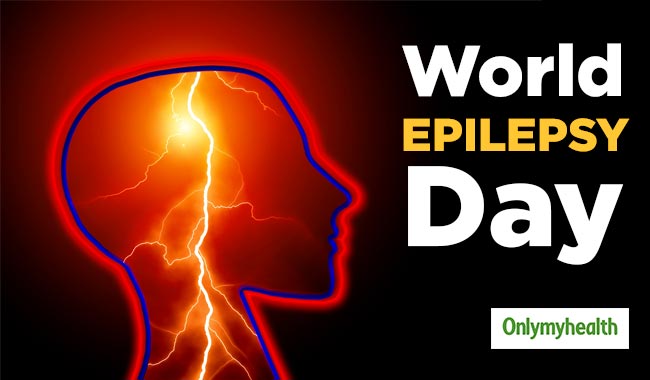
According to the World Health Organization, around 50 million people get affected by epilepsy every year, making it one of the most common neurological diseases worldwide. It is the fourth most common neurological disorder following migraines, strokes and Alzheimer’s.

Epilepsy is a neurological disorder characterized by unpredictable seizures and can lead to various other health problems. It can affect people of any age. An epileptic seizure occurs when the nerve cells in the brain suddenly increase their activity, causing an electrical storm that can overwhelm the brain and cause it to seize. Basically, anything that disrupts the normal function of the brain can cause seizures and epilepsy.
Signs and Symptoms of Epilepsy
Signs and symptoms can vary depending on the part of the brain that is affected and the type of seizure. Epilepsy can be classified on as partial seizures (when the small part of the brain is affected) and generalized seizures (when most part of the brain is affected). Some of the signs and symptoms of epilepsy include:
- Changes in the ways things appear, smell, feel, taste or sound
- Stiffness of some muscles or twitching on one side of your arms, legs and face
- Sensory changes such as tingling sensations in your arms and legs
- Emotional disturbances such as fear or joy
- Repeated smacking of lips
- Pointless moving or rubbing of your hands
- Making random noises
- Taking an unusual posture
- Repeated chewing or swallowing
- Fiddling with clothes or objects – uncontrollable movements
A person loses awareness and can’t remember what happened during the seizures during a severe seizure.
Also read: Natural and effective remedies for epilepsy
Risk Factors of Epilepsy
There are certain risk factors that might put you at a higher risk of developing the disease. Risk factors include:
- Age - Epilepsy can start at any age, but two age groups are more likely to get affected: early childhood and people over the age of 55.
- Family History – You are at a higher risk if someone in your family has epilepsy.
- Dementia – People suffering from dementia (a decline in memory and other thinking skills) can also develop the disease.
- Vascular Diseases – Blood vessels diseases and strokes can lead to brain damage, which can trigger a seizure, eventually leading to epilepsy.
- Concussions or Head Injuries - If you have previously experienced a concussion or a head injury, you are more likely to suffer from epilepsy.
- Brain Infections - Infections in the brain or the spinal cord can also up the risk of developing epilepsy.

Also read: Epilepsy Linked to Disparity in Brain
Diagnosis of Epilepsy
Diagnosis of epilepsy usually begins with a medical history and physical examination. Since there are so many seizures, it is important for the doctor to identify the type of seizure that the patient has had.
A physician may ask questions about the nature of seizures, symptoms the patient experienced and the medications they might be taking. In addition to the medical history and physical examination, a physician may conduct tests to assess which areas of the brain may be involved in the seizures. The tests include:
- An EEG (Electroencephalogram) - During an EEG, electrical activity in the brain is monitored through electrodes placed on the scalp. People with epilepsy may show abnormally slow frequencies or spikes and other disruptions, even when they are not having a seizure
- A CAT (Computed Axial Tomography) scan - A CAT scan is a noninvasive or minimally invasive test that uses a rotating x-ray device to create detailed cross-sectional images of different body parts, including the brain.
- An MRI (Magnetic Resonance Imaging) - An MRI is a noninvasive procedure that uses powerful magnets and radio waves to produce clear, cross-sectional and three-dimensional images of the body’s tissues.
- Blood Tests – Blood samples may be taken to check if the patient suffers from health problems such as diabetes, anaemia, infections; all of which might be causing recurrent seizures.
Read more articles on Health.
For more related articles, download OnlymyHealth app.
How we keep this article up to date:
We work with experts and keep a close eye on the latest in health and wellness. Whenever there is a new research or helpful information, we update our articles with accurate and useful advice.
Current Version